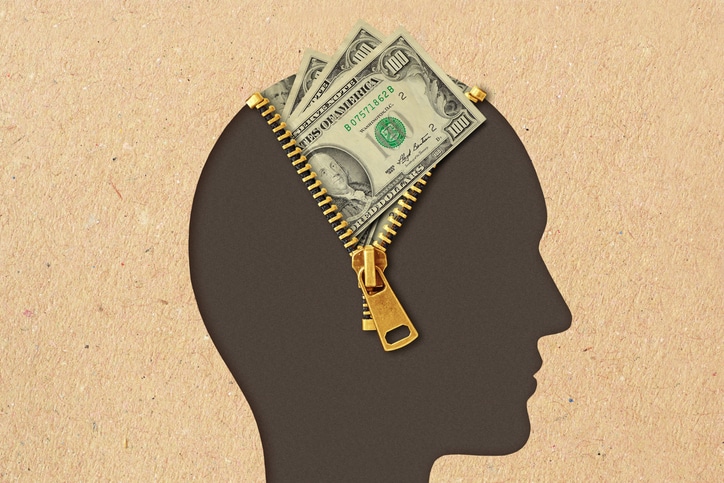Your relationship with money can be thought of as a set of beliefs about what you can do, be or have with money. This relationship has three core components:
What do I believe about myself?
What do I believe about money?
What do I believe about money and myself?
Understanding your relationship with money means looking at all three parts and the following process can be used for any of them. For the sake of simplicity, we will look at money beliefs only and we’ll use the example of ‘rich people are greedy’.
- Name the belief. We can’t change what we’re not conscious of and many beliefs are unconscious. So, this isn’t as straightforward as it sounds, and you might not like articulating what you believe; but it’s a very necessary step. So, ‘rich people are greedy’.
- Ask yourself what is true about this belief? How true is it? Is always true or only in certain circumstances or with certain people? There is usually an element of truth to beliefs and we are surrounded of stories about greedy rich people. But is it universally true? Can you be rich and not greedy? How do you define rich?
- Ask what function does the belief serve. Beliefs that we create ourselves have usually had a purpose. So, what is it? If grew you up around people with more money than you, it might have been hard to see them with better toys or nicer looking lives. Characterising them as greedy is a simple and common way to make yourself feel better about your situation.
- Then look at what might not be true and what the costs of this belief are. Something that was useful when you were younger might not serve you now. Believing that success=greed can lead to self-sabotage because you subconsciously reject success, even when it would be good for you.
- Ask yourself what might be an alternative belief that would be more true and less costly, but still in service of the function you identified in step 3. Instead of equating success with greed, committing to acting with integrity and treating people with respect and dignity in all your business dealings might be a better way to feel good about yourself and what you do.
- Compare the two beliefs as if they were competing – which they are – and consciously choose the new one. Then visualize how you will be acting on this new basis and the rewards it will bring you and the people around you. This could mean not being reactive around people who have more and being able to generate more for yourself and your family.
As with any behaviour change, there are always bumps in the road, so don’t be hard on yourself. It’s also really helpful to have someone who can support you without judgment.
Learn about how your money beliefs keep you poor.
And where money blocks come from.
Read about how a client overcame their lifelong money blocks.
Why not call for a chat or to find out more about your money beliefs.





